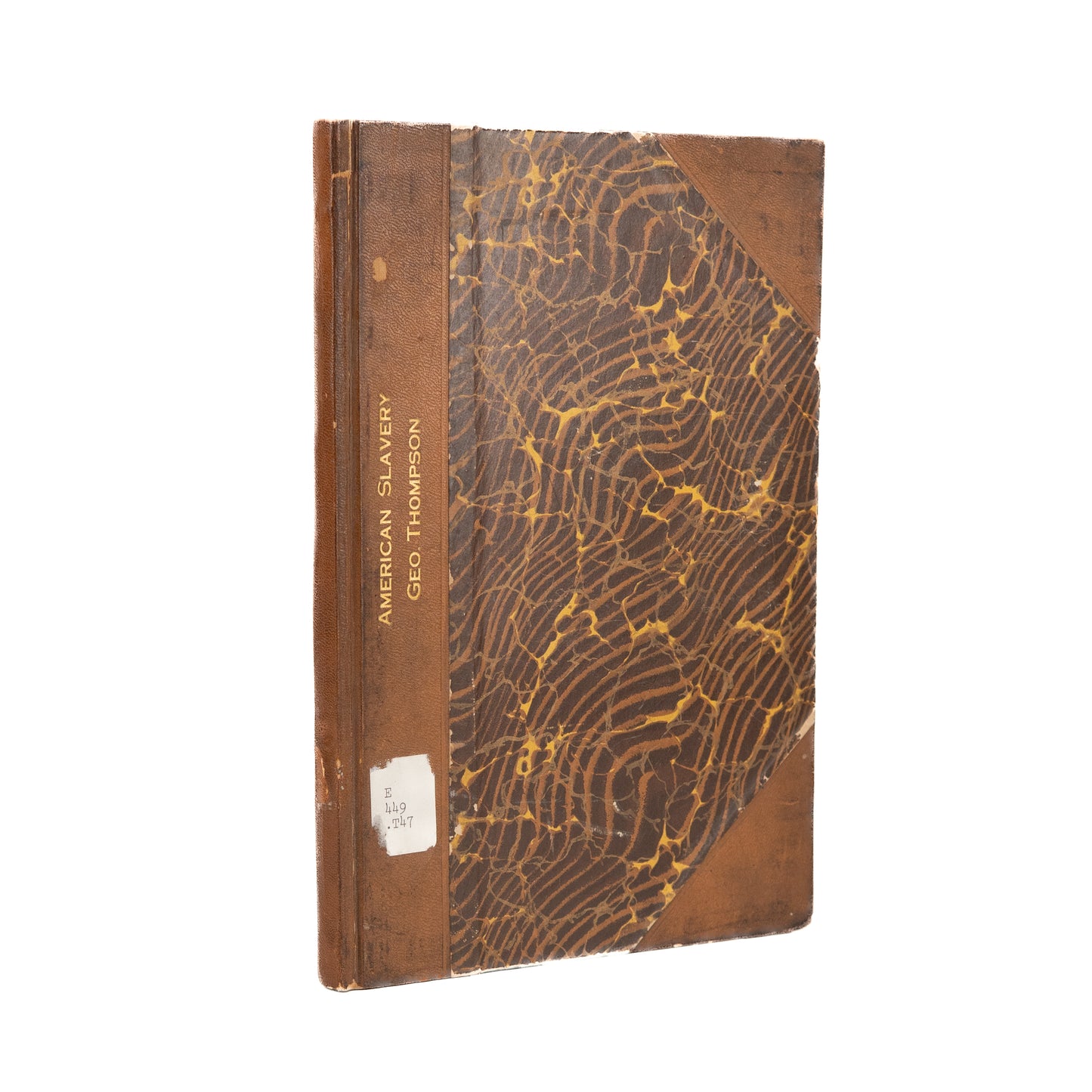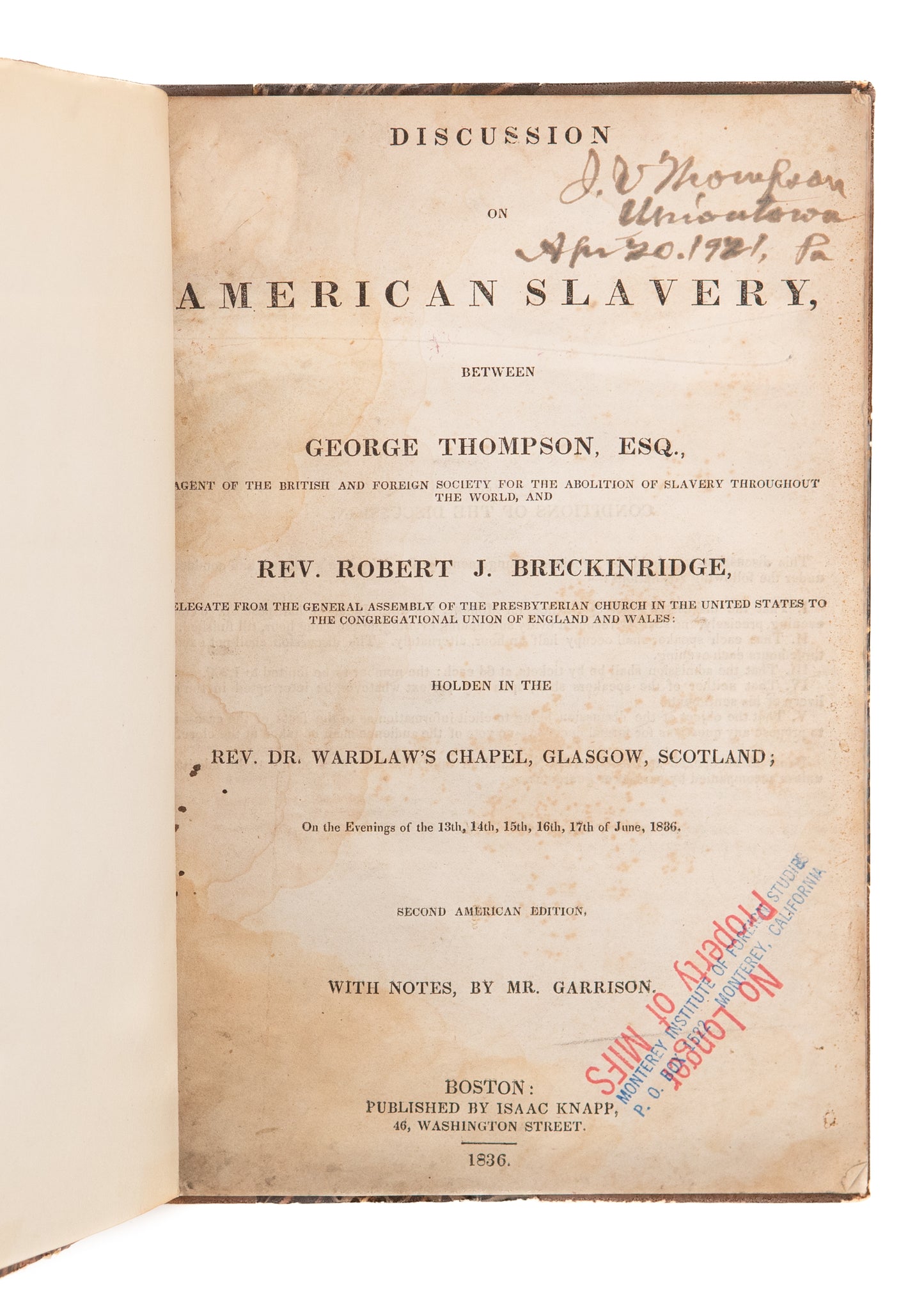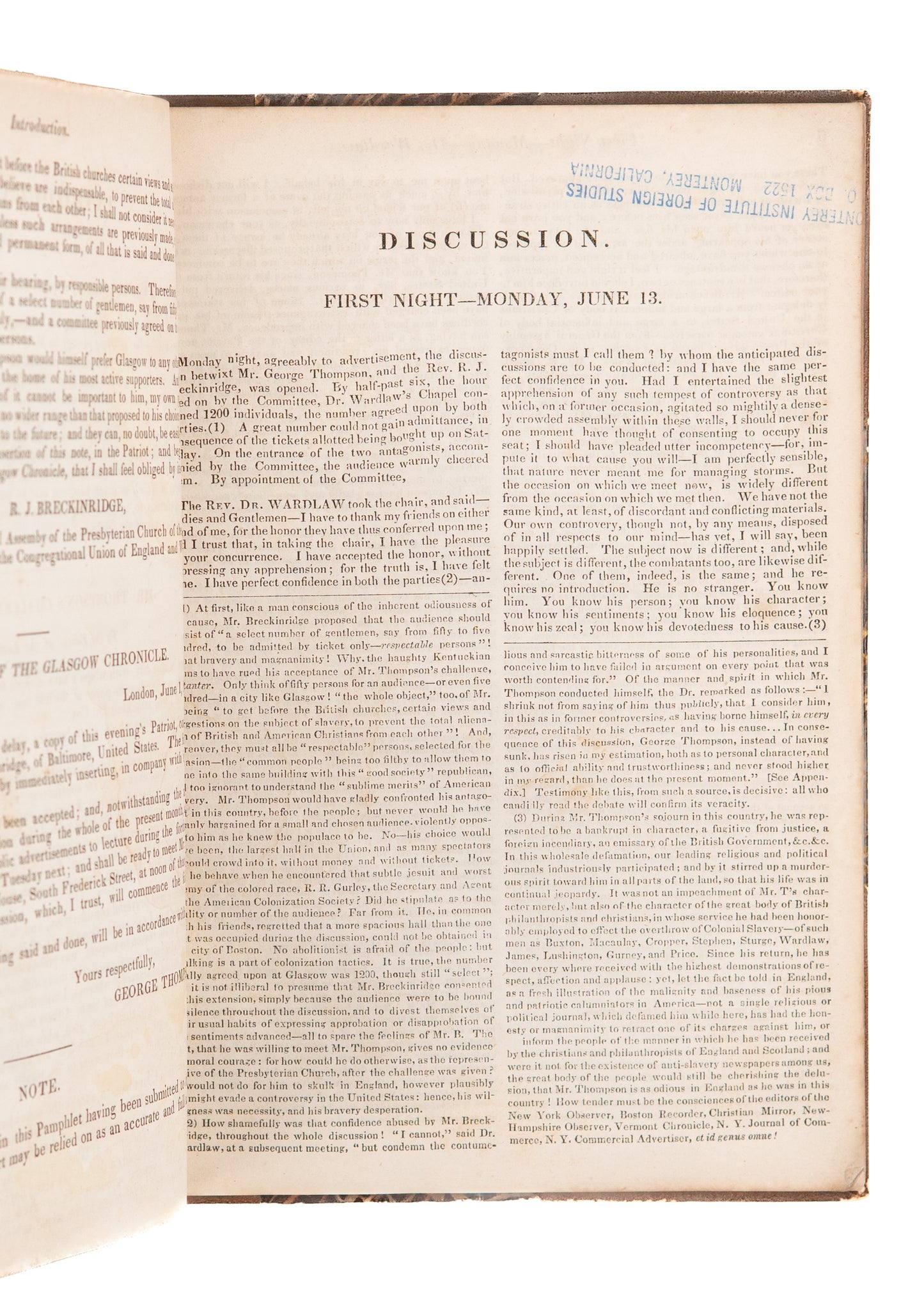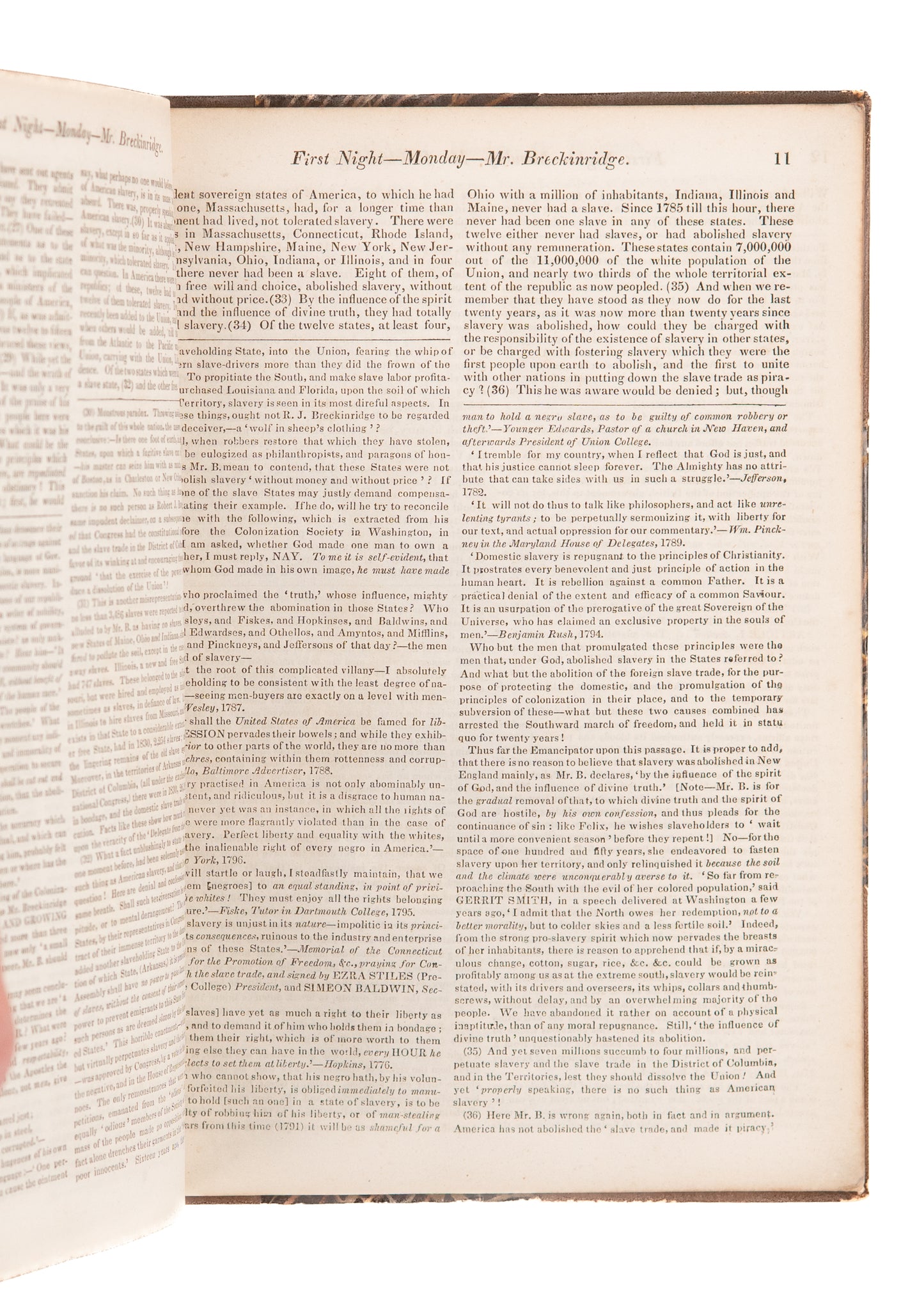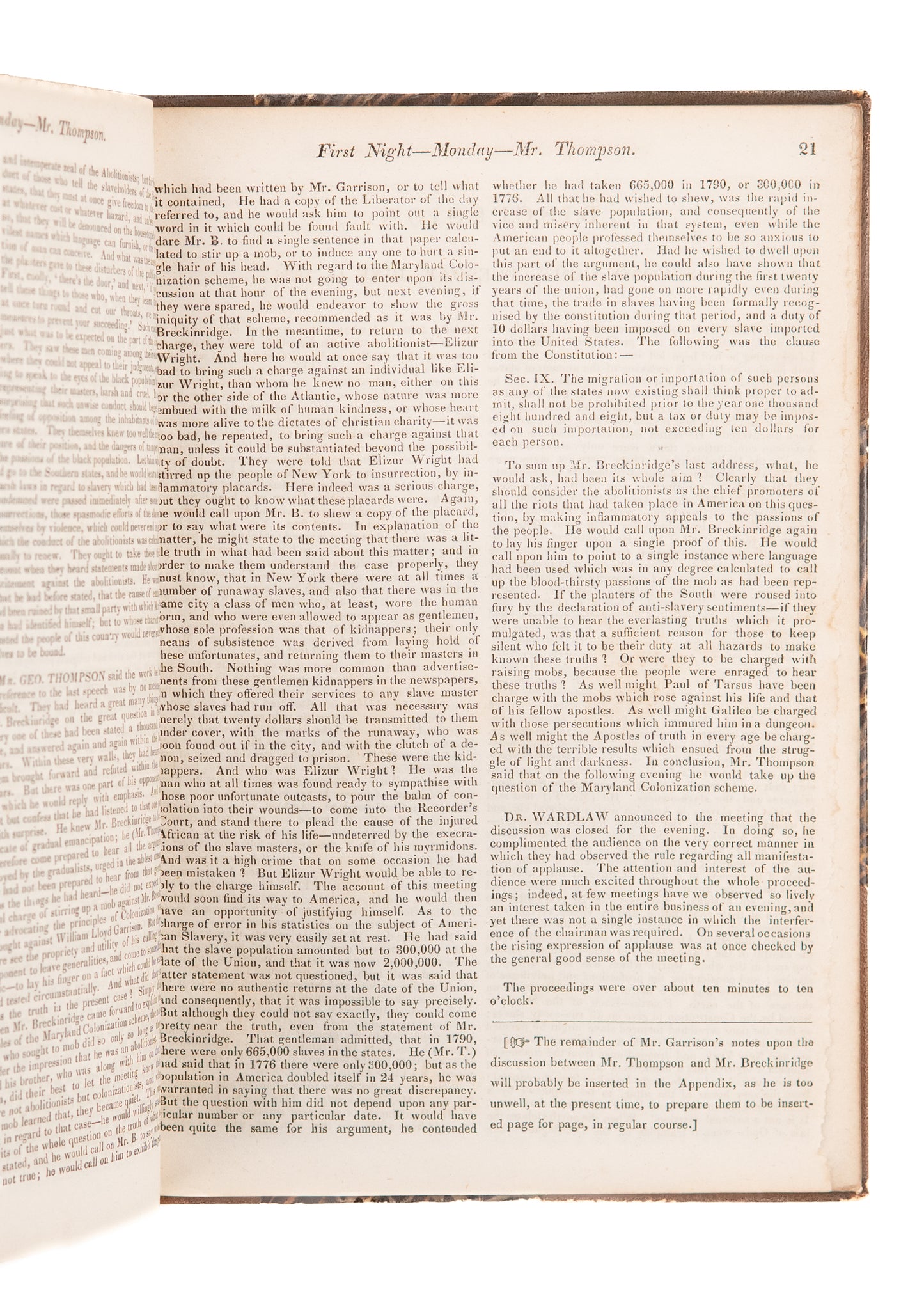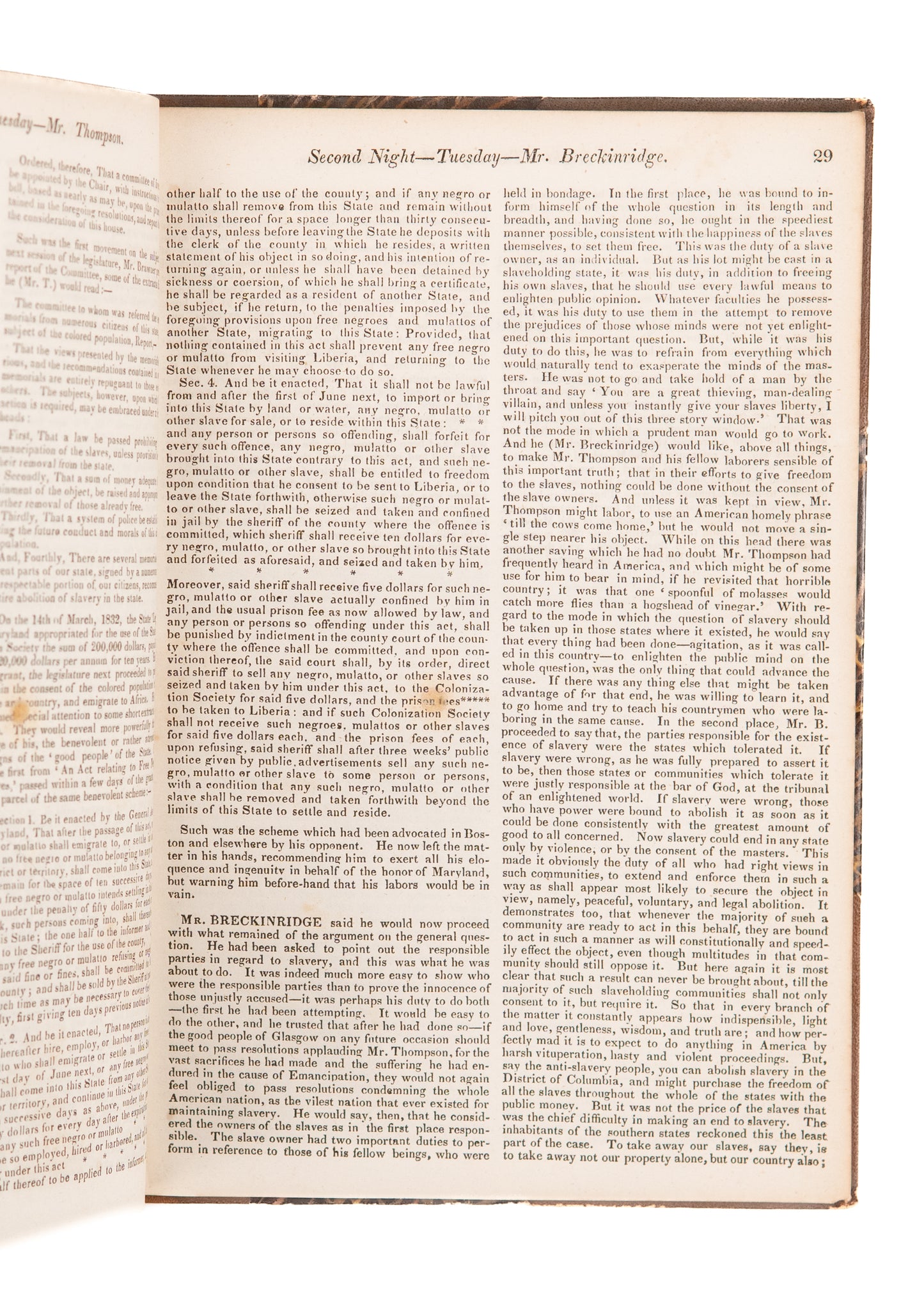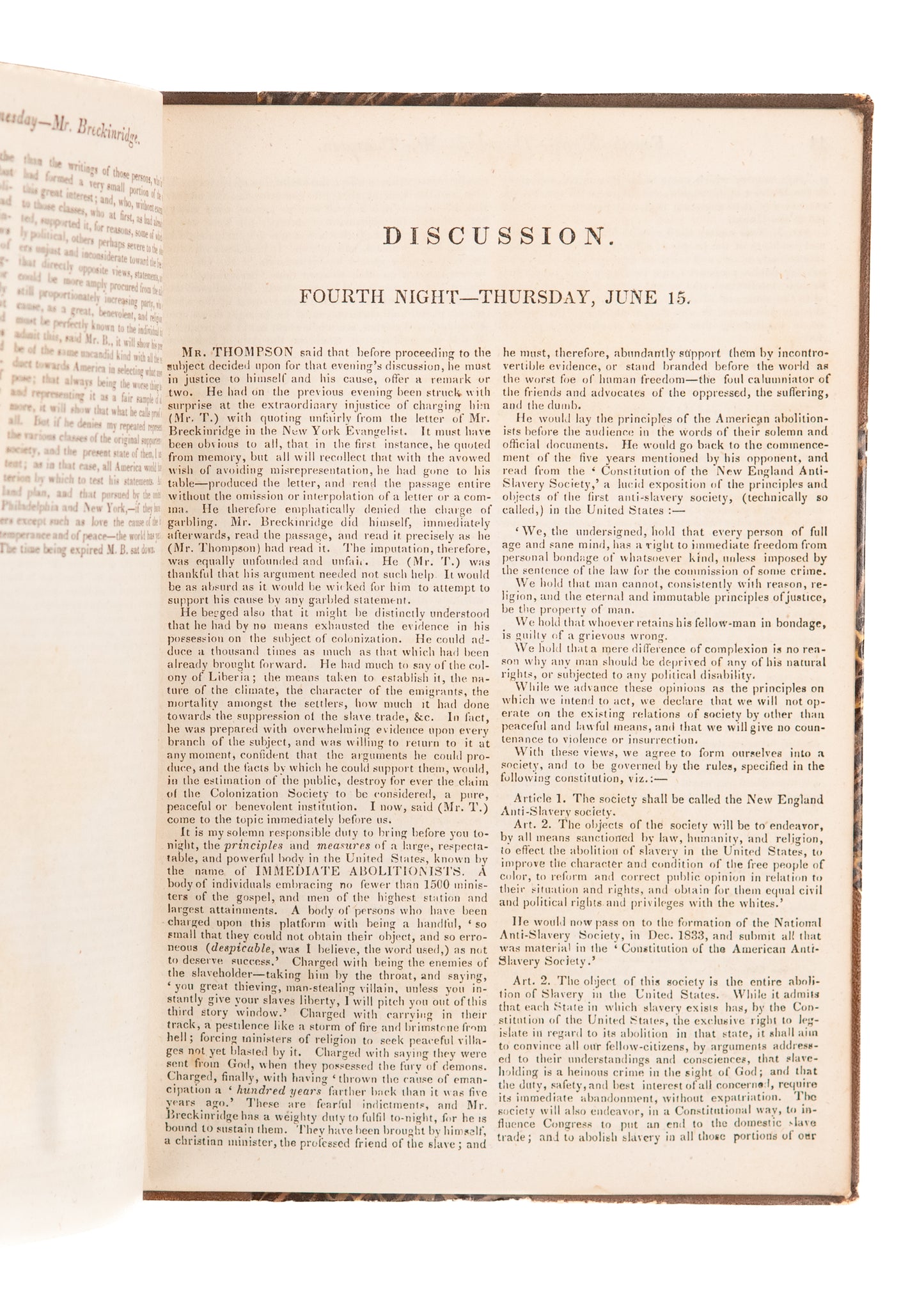Specs Fine Books
1836 WILLIAM LLOYD GARRISON. Scathing Rebuke of "Moderate" Clergy on Issue of Slavery.
1836 WILLIAM LLOYD GARRISON. Scathing Rebuke of "Moderate" Clergy on Issue of Slavery.
Couldn't load pickup availability
1836 WILLIAM LLOYD GARRISON. Important Notes on American Slavery in Dialogue with British Abolitionist, George Thompson.
A very important early effort by British Abolitionist, George Thompson, shortly after the successful efforts of William Wilberforce, to utilize the success of English abolitionism to exert influence on American slavery. In the Thompson / Breckenridge discussion, pressure is exerted on American abolitionists in general and on clergy, especially Southern Clergy [Breckenridge was of Kentucky] to use the pulpit to preach against something that was so manifestly both a personal and a community sin against God and humanity, etc.,
Garrison’s notes, which at times take up more of the page than the original discussion, are dripping with sarcasm against Breckenridge’s “moderating” position on the issue of abolition, etc., A fascinating document intersecting British abolitionism, American radical abolitionism, and “moderate” clergy.
Garrison, William Lloyd. Discussion on American Slavery, Between George Thompson, Esq., Agent of the British and Foreign Society for the Abolition of Slavery throughout the World, and Rev. Robert J. Breckinridge, Delegate from the General Assembly of the Presbyterian Church in the United States to the Congregational Union of England and Wales: Holden in the Rev. Dr. Wardlaw’s Chapel, Glasgow, Scotland; On the Evenings of the 13th, 14th, 15th, 16th, 17th of June, 1836. Second American Edition. With Notes by Mr. Garrison. Boston. Isaac Knapp. 1836. 80pp
[with]
Public Meeting in Glasgow with Reference to the Discussion, August 1, 1836. 23pp.
Last offered at auction, 2008. Rare in the trade.
In an attractive c.1900 binding. The offending label being removed from the front cover would render it quite attractive. Ex library with stamp on title, one page of text, and rfep only. One page forward in the original binding resulting in marginal loss without textual damage. Some toning and light staining. Very solid.
Share
